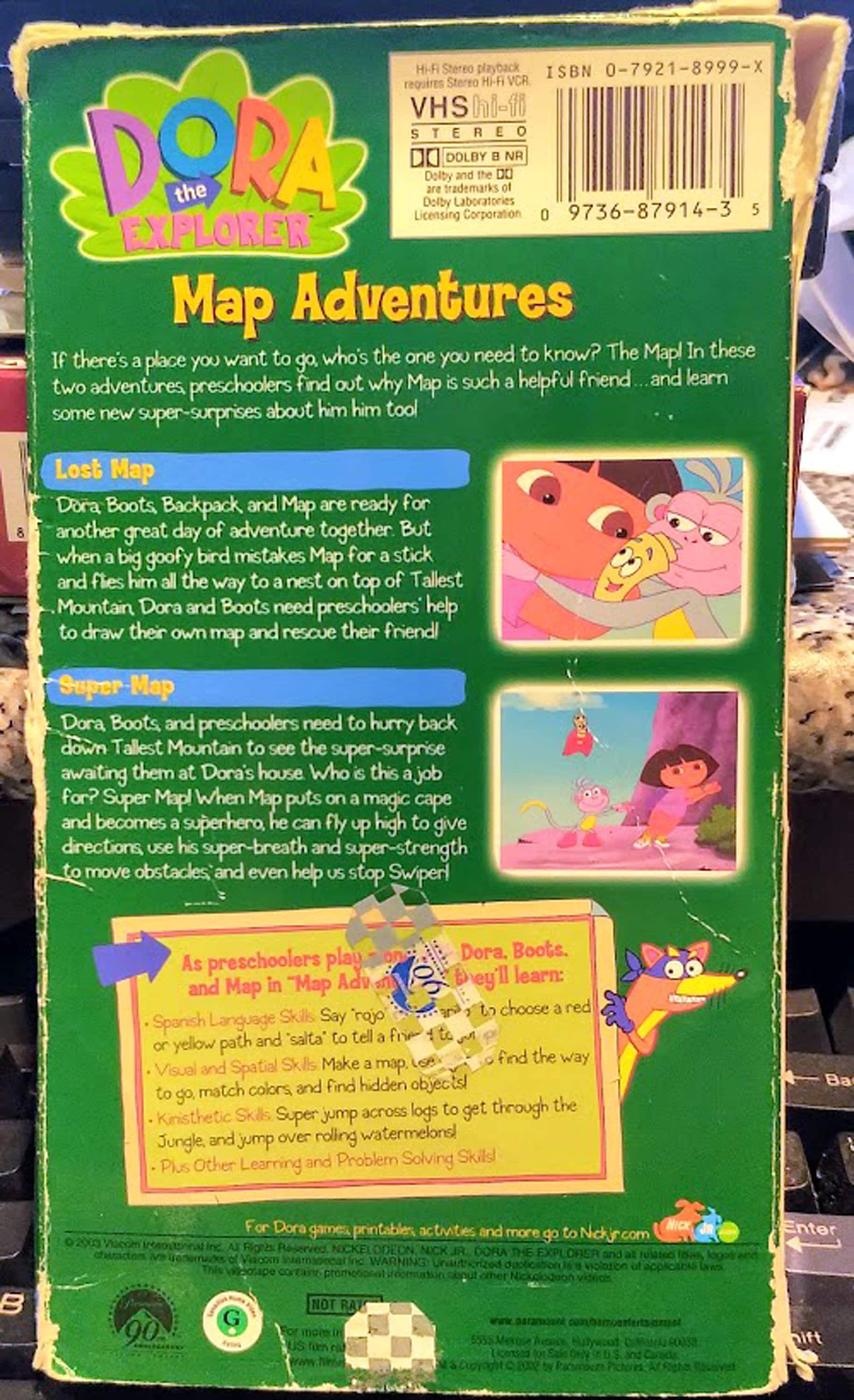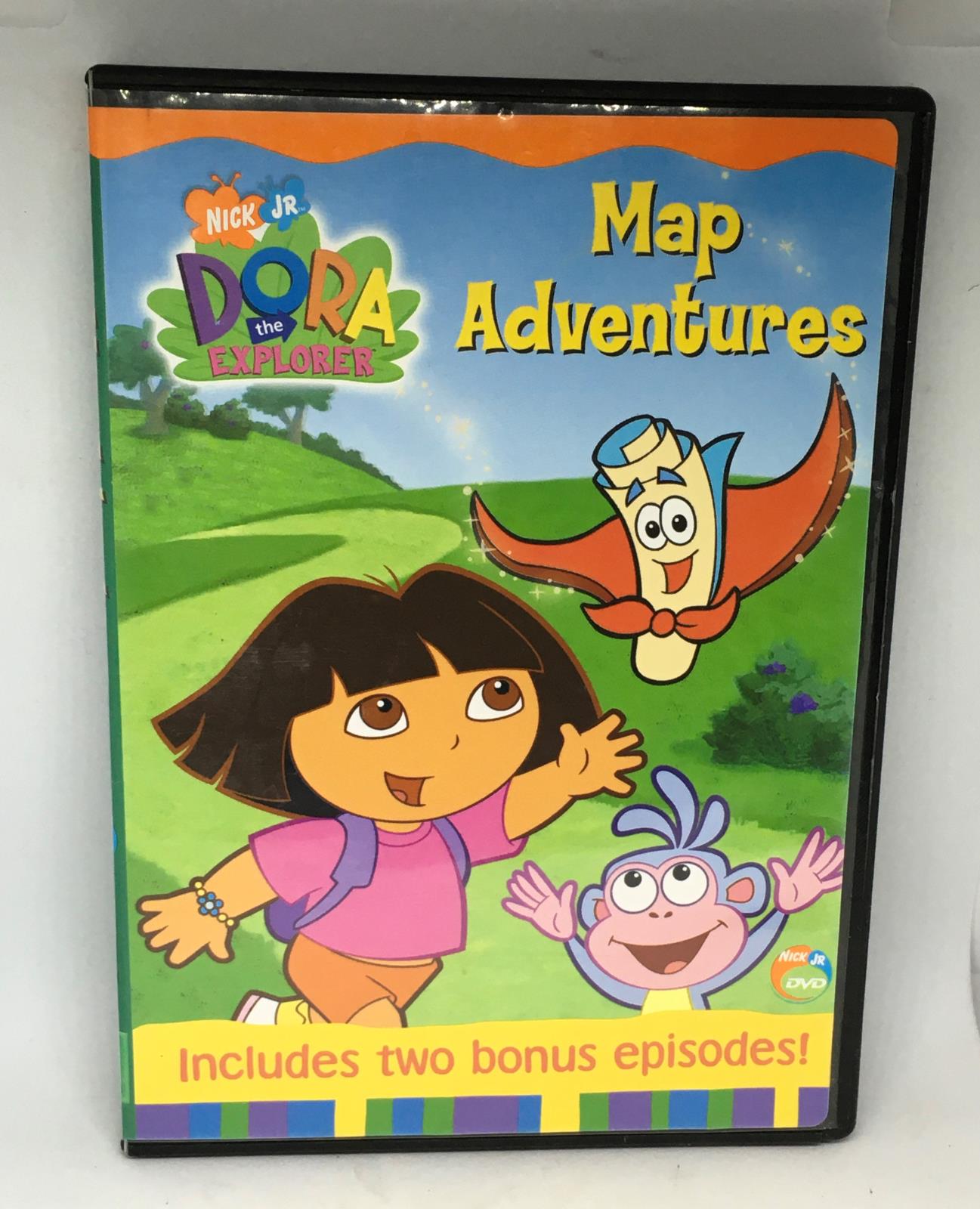World Updates | Update information about politics and social around the world
Dora The Explorer: Adventures Of A Curious Girl On A Quest For Knowledge
Dora The Explorer: Adventures Of A Curious Girl On A Quest For Knowledge
Is your child curious about the world around them? Do they love to explore? If so, then Dora the Explorer is the perfect role model for them.
Editor's note: Dora the Explorer: Adventures of a Curious Girl on a Quest for Knowledge was published on August 19, 2000. This topic is important to read because it gives parents and educators insights into how to encourage curiosity and exploration in children.
In this guide, we will explore the many ways that Dora the Explorer can help your child learn and grow.
Key differences or Key takeaways
| Dora the Explorer | Other children's shows |
|---|---|
| Focuses on exploration and discovery | Often focus on entertainment |
| Features a diverse cast of characters | Often feature a limited cast of characters |
| Encourages children to be active and engaged | Often encourage children to be passive and sedentary |
Main article topics
- The benefits of Dora the Explorer
- How to use Dora the Explorer to teach your child
- Activities that you can do with your child to encourage exploration and discovery

An illustration of a curious pomegranate raising a question - Source www.alamy.com
FAQ
This Frequently Asked Questions section aims to provide comprehensive answers to common inquiries and misconceptions surrounding "Dora The Explorer: Adventures Of A Curious Girl On A Quest For Knowledge."

Dora the Explorer Quotes: Nostalgic Lessons for All Ages - Darling Quote - Source darlingquote.com
Question 1: What is the target audience for the show?
Dora The Explorer primarily targets preschool-aged children between the ages of 2 and 5. The show's content, language, and interactive storytelling are specifically designed to engage and encourage learning in this age group.
Question 2: What are the educational goals of the show?
Dora The Explorer seeks to foster a love of learning, problem-solving, and language development in young viewers. Through its interactive format, the show encourages children to participate actively, expand their vocabulary, and learn about different cultures and environments.
Question 3: Does the show promote negative stereotypes?
No, Dora The Explorer does not promote negative stereotypes. The show features a diverse cast of characters from various cultural backgrounds, and it emphasizes the importance of inclusivity and respect for cultural differences. Dora's adventures often involve exploring different cultures, showcasing their unique traditions and perspectives.
Question 4: How does the show encourage social-emotional development?
Dora The Explorer incorporates social-emotional learning into its storylines. Dora and her friends demonstrate empathy, kindness, and cooperation, encouraging viewers to cultivate these traits. The show also emphasizes the importance of self-regulation and problem-solving, teaching children how to navigate social situations and handle challenges.
Question 5: Are there any concerns regarding the show's academic value?
While Dora The Explorer focuses on entertainment, it also provides educational opportunities. The show incorporates elements of STEM (Science, Technology, Engineering, and Math) and exposes children to basic concepts in these areas. Through interactive songs, puzzles, and storytelling, the show encourages curiosity, questioning, and problem-solving skills.
Question 6: How can parents and educators use the show to support learning?
Parents and educators can use Dora The Explorer as a springboard for further discussions and activities. By engaging with children about the show's themes and characters, they can reinforce the educational messages and promote deeper understanding. They can also extend the learning experience by asking questions, creating related games or activities, and exploring additional resources on topics introduced in the show.
In conclusion, "Dora The Explorer: Adventures Of A Curious Girl On A Quest For Knowledge" is a valuable educational resource for young children. The show promotes a love of learning, encourages language development, fosters social-emotional skills, and provides opportunities for STEM exploration.
For more information and resources, please refer to the official website of the show or consult with educational experts.
Tips by Dora The Explorer: Adventures Of A Curious Girl On A Quest For Knowledge
Harnessing curiosity and fostering a lifelong quest for knowledge can lead to personal growth and educational success. Embark on an intellectual journey with these practical tips inspired by the beloved children's show "Dora The Explorer."
Tip 1: Ask Questions:
Embrace the power of curiosity and question everything. Seek answers to your inquiries through books, the internet, teachers, and experts. By asking questions, you unlock a world of knowledge and gain a deeper understanding of the world around you.
Tip 2: Go on Explorations:
Venture beyond your comfort zone and embark on intellectual adventures. Explore different cultures, learn new languages, and engage in activities that stimulate your mind. Through exploration, you broaden your perspectives and expand your knowledge base.
Tip 3: Be Persistent:
Don't let obstacles or challenges deter you from pursuing knowledge. Persevere through difficult concepts and seek alternative paths to understanding. Persistence is a key ingredient to academic success and intellectual growth.
Tip 4: Seek Support:
Don't hesitate to reach out for help when you encounter difficulties in your quest for knowledge. Seek guidance from teachers, librarians, mentors, or peers who can provide support and insights. Collaboration fosters learning and enhances your understanding of complex subjects.
Tip 5: Celebrate Successes:
Acknowledge and celebrate your accomplishments along the way. Small steps toward knowledge acquisition deserve recognition. By appreciating your progress, you stay motivated and encourage further exploration.
Conclusion:
Remember, the journey of knowledge acquisition is an ongoing and enriching experience. By embracing curiosity, asking questions, and seeking support, you can cultivate a lifelong love for learning and unlock your full intellectual potential.
Dora The Explorer: Adventures Of A Curious Girl On A Quest For Knowledge
Dora the Explorer, an animated television series, follows the adventures of Dora, a young girl who embarks on a quest for knowledge with her friends, Boots and Backpack. The show highlights several key aspects that contribute to its effectiveness in fostering curiosity and learning in young viewers.
-

DORA The Explorer :: Behance - Source www.behance.net - Interactive Learning: Dora directly addresses the audience, engaging them in the storytelling and encouraging active participation.
- Cultural Exploration: The show introduces viewers to different cultures, languages, and customs, promoting cultural awareness and appreciation.
- Problem-solving: Dora and her friends encounter various challenges, teaching children about critical thinking and perseverance.
- Spanish Language Immersion: The series incorporates Spanish words and phrases, promoting language acquisition in a fun and engaging way.
- Positive Role Models: Dora and her friends demonstrate positive values such as kindness, empathy, and resilience, inspiring young viewers.
-

Dora the Explorer: Map Adventures / VHS / Hi-fi Stereo / Dolby / 2 - Source www.etsy.com
These key aspects work together to create a dynamic and educational viewing experience. Dora's adventures not only entertain young viewers but also ignite their curiosity, foster problem-solving skills, and promote cultural understanding. The show's interactive nature and positive role models make it an effective tool for early childhood education.
Dora The Explorer: Adventures Of A Curious Girl On A Quest For Knowledge
"Dora The Explorer: Adventures of a Curious Girl on a Quest for Knowledge" is an animated television series that follows the adventures of Dora, a 7-year-old Latina girl, as she explores the world around her. The show premiered on Nickelodeon in 2000 and has since become one of the most popular children's shows in the world.

Dora the Explorer - Map Adventures (DVD, 2003) 97368753143 | eBay - Source www.ebay.com
Dora is a curious and inquisitive girl who loves to learn new things. She is always eager to go on new adventures and explore her surroundings. Dora's adventures often involve helping others, solving problems, and learning new skills. The show emphasizes the importance of education, friendship, and problem-solving.
Dora The Explorer has been praised for its positive portrayal of a Latina girl and for its emphasis on education. The show has been shown to improve children's vocabulary, problem-solving skills, and social skills. Dora has also been a role model for many young Latina girls, showing them that they can be anything they want to be.
The connection between "Dora The Explorer: Adventures of a Curious Girl on a Quest for Knowledge" and content details is that the show emphasizes the importance of education and learning. Dora is a curious and inquisitive girl who is always eager to learn new things. The show encourages children to be curious and to explore the world around them. It also shows children that learning can be fun and rewarding.
| Skill | How Dora Teaches It | Real-Life Examples |
|---|---|---|
| Problem-solving | Dora often has to solve problems in order to complete her adventures. | Children can learn how to solve problems by watching Dora and by playing problem-solving games. |
| Vocabulary | Dora uses a lot of new words in each episode. | Children can learn new words by watching Dora and by reading Dora books. |
| Social skills | Dora interacts with a variety of characters in each episode. | Children can learn how to interact with others by watching Dora and by playing with other children. |
Conclusion
"Dora The Explorer: Adventures of a Curious Girl on a Quest for Knowledge" is a valuable resource for children. The show teaches children about a variety of important topics, including education, friendship, and problem-solving. Dora is a positive role model for children, and her adventures can help children to learn and grow.
The show's emphasis on education is particularly important. In today's world, it is more important than ever for children to have a strong foundation in education. Dora The Explorer can help children to develop a love of learning that will stay with them for the rest of their lives.